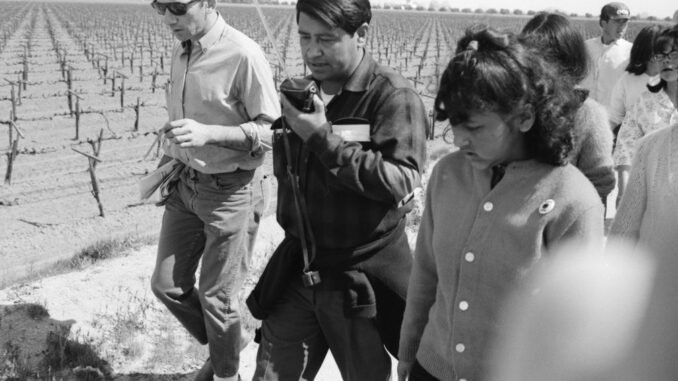
After losing his family’s Arizona farm in the Great Depression, young Cesar Chavez witnessed the challenges immigrant farmworkers face when it comes to fair wages, protection from abuse, and worker rights. After dropping out of school to work in the fields of California with his family, he enlisted in the Navy to serve the United States during World War II, reading history in his early adulthood and later campaigning for basic rights. I spent my time learning to help. for his work mate.
After losing his job at General His Box Company in 1953, Chavez stepped up his commitment to community organizing. He joined a Latin American civil rights organization called the Community Service Organization, where he worked for ten years, eventually becoming its National Director. But for Chavez, that wasn’t enough. He believed the organization’s focus on immediate problems rather than underlying social causes was shortsighted. In his view, lasting and large-scale change required the formation of trade unions.

In 1962, Chavez founded the National Farm Workers Association. He spent two years in public relations and organizing until he launched the first major strike against California winegrowers in 1965. As a result, all California wine grapes were boycotted for his amazing five years. He won wide support for leading the 340-mile march from Delano, California to the capital, Sacramento, and then gained even more respect in 1968 when he survived a 25-day hunger strike. Inspired by non-violent activists like Mahatma Gandhi in India, Chavez engaged in non-violent civil disobedience movements.
The boycott was successful, and in 1970 workers earned the right to organize. The following year, it merged with the N.F.W.A. Farm Workers Organizing Committee to form the Farm Workers Federation of America. The organization still exists today and has thousands of members across the country. Finally, in 1975 California passed the Farm Workers Relations Act, giving all farm workers in the state the right to organize.

With this big win, Chavez turned his attention to regulating pesticides after many farmers and their children got sick from the chemicals used in their fields. In 1988, at the age of 61, he went on a third hunger strike that lasted 36 days. Five years later, he died of natural causes, but remains a sort of folk hero among Chicano and those who fight for workers’ rights. The year after his death, he was awarded the Presidential Medal of Honor and his slogan “Si, se puede!” was used as His name adorns parks, streets and schools across the country and is sure to inspire workers’ rights advocates for decades to come.